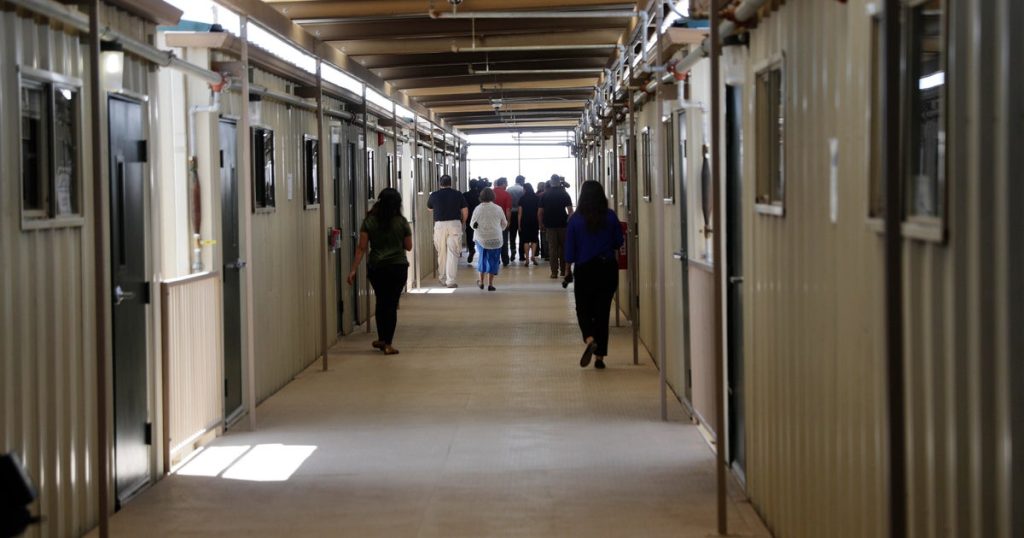A federal judge in Colorado has made a pivotal ruling regarding the immigration case of the family of the suspect involved in a recent terror attack in Boulder. Following significant legal scrutiny, Judge Gordon Gallagher has transferred the case of Hayem El Gamal and her five children to the U.S. District Court for the Western District of Texas. This transfer comes after the suspension of their expected deportation proceedings, highlighting a complex intersection of immigration law and civil rights.
| Article Subheadings |
|---|
| 1) Overview of the Terror Attack |
| 2) Details of the Immigration Case |
| 3) Rationale Behind the Transfer |
| 4) Current Status of the Family |
| 5) Implications for Immigration Law |
Overview of the Terror Attack
The incident in Boulder sparked widespread alarm when Mohamed Soliman allegedly launched a violent attack using Molotov cocktails against a group of marchers advocating for Israeli hostages. This peaceful demonstration highlighted the ongoing conflict in Gaza and was intended to raise awareness about the plight of hostages. Authorities quickly intervened, identifying Soliman as a significant threat, which raised serious questions about his motivations and background.
Details of the Immigration Case
Shortly after the attack, immigration officials took swift action against Soliman’s family, detaining his wife Hayem El Gamal and their five children. They had legally migrated to the U.S. from Egypt in August 2022, but Soliman was found to have overstayed his visa and submitted an asylum application shortly thereafter. The Department of Homeland Security indicated that his family was set for expedited removal, which led to immediate legal challenges regarding their detention.
Rationale Behind the Transfer
Judge Gallagher’s decision to transfer the case to the U.S. District Court for the Western District of Texas stems from his concerns surrounding due process. In a ruling that emphasizes the constitutional obligations of the government, he pointed out that expediting removal proceedings could potentially violate Ms. El Gamal’s and her children’s rights. He stated,
“If Respondents had resorted to expedited removal and summarily deported Ms. El Gamal and her children to Egypt, Respondents likely would have violated Ms. El Gamal’s and her children’s due process rights.”
This highlights the judicial system’s role in upholding individual rights even amidst significant legal pressures.
Current Status of the Family
As of now, Hayem El Gamal and her children remain in ICE custody at a facility in Dilley, Texas. The recent temporary injunction by Judge Gallagher has halted their deportation, allowing them some level of respite as their case continues to unfold. While the next hearing date is unspecified, the family is expected to receive further legal representation to ensure due process is honored. The significance of this case extends beyond individual concerns, as it taps into broader discussions about immigration policy and rights.
Implications for Immigration Law
The transfer of this case carries considerable implications for immigration law and due process in the United States. By emphasizing the imperative of upholding individual rights, Judge Gallagher’s ruling may set a precedent for future cases involving families of individuals accused of terror-related activities. Additionally, this highlights the delicate balance that must exist between national security and the constitutional rights of individuals, even in cases where public safety is at stake. This case exemplifies the growing need for comprehensive immigration reform and a sensitive approach to legal proceedings involving potential civil rights violations.
| No. | Key Points |
|---|---|
| 1 | A federal judge has transferred the immigration case of Hayem El Gamal and her children following their detention. |
| 2 | Mohamed Soliman allegedly attacked peaceful demonstrators with Molotov cocktails, raising concerns of terrorism. |
| 3 | The family migrated from Egypt and faced expedited removal after Soliman overstayed his visa. |
| 4 | Judge Gallagher emphasized the need for due process, suspending deportation proceedings. |
| 5 | The case may have lasting implications for future immigration cases, particularly regarding civil rights. |
Summary
The recent ruling by a federal judge regarding the immigration status of the family linked to the Boulder terror attack underscores the intricacies and challenges at the intersection of immigration law and civil rights. With due process at the forefront of this legal battle, the implications connect directly to a broader discourse about the treatment of families and individuals facing possible deportation amidst allegations of criminal activity. Continued scrutiny and legal actions will likely follow as this case continues to unfold.
Frequently Asked Questions
Question: What led to the family’s detention?
The family was detained following allegations against Mohamed Soliman, who was accused of attacking peaceful demonstrators in Boulder, thus putting his family’s immigration status in jeopardy.
Question: What is expedited removal?
Expedited removal is a process by which certain non-citizens can be swiftly deported from the United States without the usual legal proceedings, typically applied to individuals who had recently entered the country unlawfully or have overstayed their visas.
Question: What are the implications of the judge’s ruling?
The judge’s ruling stresses the importance of due process in immigration cases and could set a precedent for similar cases, ensuring that individuals receive fair treatment even when accused of serious crimes.


